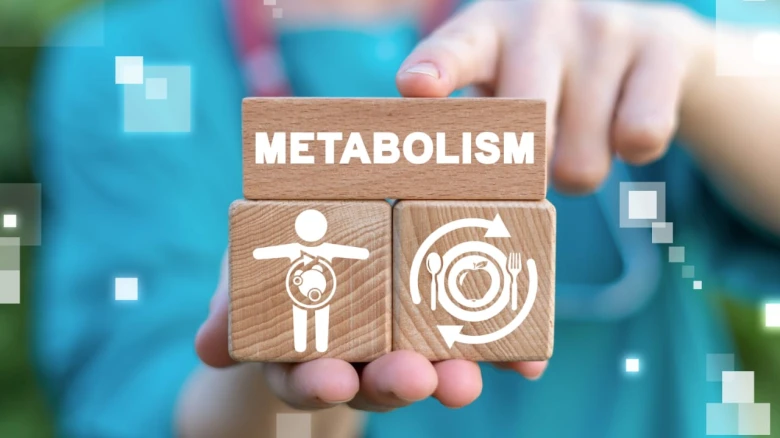Article

Maintaining a balanced diet rich in these essential nutrients is vital for supporting optimal metabolic function and overall health...
Digital Desk: Our body's metabolic function is highly dependent on a myriad of nutrients to operate optimally. Among these, vitamins B-complex, iron, and iodine play pivotal roles in regulating metabolism. Recognizing the signs of nutrient deficiencies is crucial for maintaining metabolic health. Experts shed light on seven key nutrient deficiencies that can significantly impact metabolism, along with their dietary sources.
1. Vitamin D: Vital for enhancing glucose uptake by cells and improving metabolism, Vitamin D deficiency can manifest through symptoms like fatigue, sleep disturbances, and muscle weakness. Sun exposure for 10-15 minutes daily and consumption of foods like fatty fish, egg yolk, and cheese can help maintain adequate levels of Vitamin D.
2. Vitamin B12: Essential for the metabolism of carbohydrates, fats, and proteins, Vitamin B12 deficiency may lead to weakness, nausea, and weight loss. Fermented foods such as dosa, kefir, and curd are excellent sources of Vitamin B12.
3. Selenium: Crucial for thyroid functioning and metabolic regulation, selenium deficiency can result in various health issues including impaired immune function and thyroid dysfunction. Brazil nuts, hazelnuts, and sunflower seeds are rich dietary sources of selenium.
4. Zinc: Involved in numerous metabolic processes, zinc deficiency can manifest through symptoms like hair loss and skin changes. Consuming foods like pumpkin seeds, chickpeas, and cashews can help prevent zinc deficiency.
5. Copper: Playing a key role in energy metabolism and iron absorption, copper deficiency may lead to anemia and irregular heartbeat. Copper vessel water, sunflower seeds, lentils, and hemp seeds are excellent dietary sources of copper.
6. Iron: Crucial for metabolic activity and combating fatigue, iron deficiency can result in symptoms like yellow skin and shortness of breath. Dates, pomegranates, and green leafy vegetables are rich sources of iron.
7. Protein: Essential for the synthesis of enzymes and hormones involved in metabolism, protein deficiency can lead to various health issues including fatty liver and muscle loss. Lentils, paneer, milk, and legumes are excellent sources of protein.
Maintaining a balanced diet rich in these essential nutrients is vital for supporting optimal metabolic function and overall health. Regular monitoring of nutrient levels and addressing deficiencies through dietary modifications can help prevent metabolic slowdown and promote well-being.
Leave A Comment